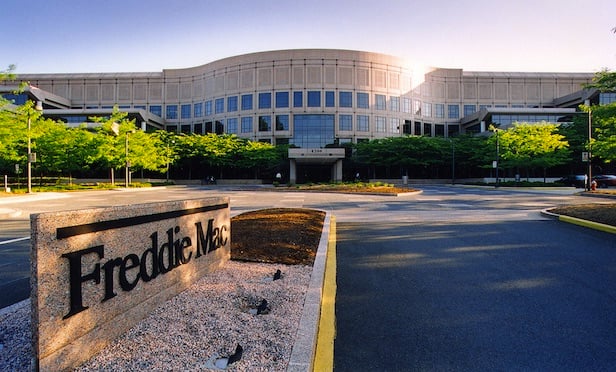The venture was a response to market conditions and a natural progression of the firm's business, relates the company's president, Adam Adache. Over the past year, various buying groups have approached the company with interest in bulk sales, given its experience in the sector. "In the past, we've worked with a number of different developers in the South Florida area," says Adache. "Part of our company handled pre-construction sales, and when the market was hot, we had over 400 projects on our website. We were in close contact with many of the developers down here, and sold a lot of units for them. Now the market has changed significantly, and we still have 200 projects on our website. We know about all the projects, and we know everyone's in trouble. So with these groups asking about these kinds of deals, we kind of stumbled into it."
Because handling bulk sales is time-consuming and complicated, Adache decided to create a dedicated division as the firm's work in that arena grew. The buyers range from small groups of wealthy individuals looking for five to 10 units, to large players such as institutions seeking 30 to 100 units--as well as a number of foreign investors. "It's a vulture market, and now is a great opportunity for people with money," says Adache.
The buyers generally do all-cash transactions, or put a large chunk of equity into the deal. They appear to have three main strategies. Some players want to buy based on a cap rate; they want to buy a property at a decent enough price where they can actually profit as a rental operation. "For that to work, in most cases, you'd have to get a discount of over 60% on most of the properties here," explains Adache. "There are banks out there that are willing to play ball and consider any price at this time."
Other buyers want to flip the property when the market picks back up in three to five years. They'd accept a low cap rate, says the executive, as long as it still covers the carrying costs and expenses of the property. And other groups want to begin selling off the units immediately. To do that, they'd need to buy very low in order to reduce the unit prices to make them attractive to individual buyers.
Ultimately, though, the bank holding the lien on the property needs to get involved. "The bank has to discount its loan in order to sell the product cheaper, and if that happens, then the developer is no longer making money," explains Adache. "The developers are still in the game, for the most part, because they're trying to save face. They're doing whatever they can to work with the banks and sell the units so they don't go into default on their terms and, frankly, get sued by the banks. So even though we talk to a lot of developers, it's usually not just the developer that's involved, but the banks as well."
The banks' adjustments are necessary for most bulk sales to happen. Because the developers can only reduce their prices so much, the banks need to discount the loan, too, so the deal is attractive to buyers. "Even before a property is foreclosed upon, we are in many cases talking with both the developer and the bank to try to figure out if we can sell it at an attractive price prior to the bank going through all their processes," relates Adache. "In many cases, we're also dealing with banks that have already foreclosed on properties. Banks are increasingly foreclosing on properties; some of them are more aggressive than others right now."
When it's a developer that's selling off the units, they can usually be divided if buyers want smaller blocks. Banks, on the other hand, typically prefer to sell entire packages. "Some banks are more desperate than others--some may be in trouble because they got involved in a lot of condo deals," he says. But once the bank writes off these properties as bad debt, it's already taken its losses. So the sale may not be profitable, it's better than nothing because they've already taken the loss."
Adache relates that while the demand for bulk sales is growing, he hasn't seen too many firms focusing on brokering these deals yet, most likely because it is such a time-intensive and costly process. But it will take another couple of years for the market to turn around, he says, and there will be plenty opportunities to get into the business, in any fashion.
"This is definitely a market where one man's misfortune creates another man's fortune," says Adache. "We have a list of approximately 20 projects we're working with and 99% of them are really in trouble. And if they're not foreclosed upon now, they will be. The market is going to get worse in 2009, as the banks hold onto these properties longer, they'll starting considering giving bigger discounts. There are thousands of units just in the tri-county region alone. [The market] is cyclical and we're in a bad time, but there are definitely opportunities out there."
Even the developers that may not profit on the deals should take notice, he adds. They may be on the losing end, but it's worth their while to unload their units in order to move forward in their business. "I think it's going to get worse before it gets better, and a lot of developers, just like individuals, have wishful thinking these days--hoping that next month's going to be better," Adache says. "Sometimes you can bury yourself even more by doing that. The market is going to be bad for a while, and they--as well as banks--should seriously consider accepting some of the offers that they think may be too low, because they might be lower six months from now when all these units come to market."
Want to continue reading?
Become a Free ALM Digital Reader.
Once you are an ALM Digital Member, you’ll receive:
- Breaking commercial real estate news and analysis, on-site and via our newsletters and custom alerts
- Educational webcasts, white papers, and ebooks from industry thought leaders
- Critical coverage of the property casualty insurance and financial advisory markets on our other ALM sites, PropertyCasualty360 and ThinkAdvisor
Already have an account? Sign In Now
*May exclude premium content© 2025 ALM Global, LLC, All Rights Reserved. Request academic re-use from www.copyright.com. All other uses, submit a request to [email protected]. For more information visit Asset & Logo Licensing.








